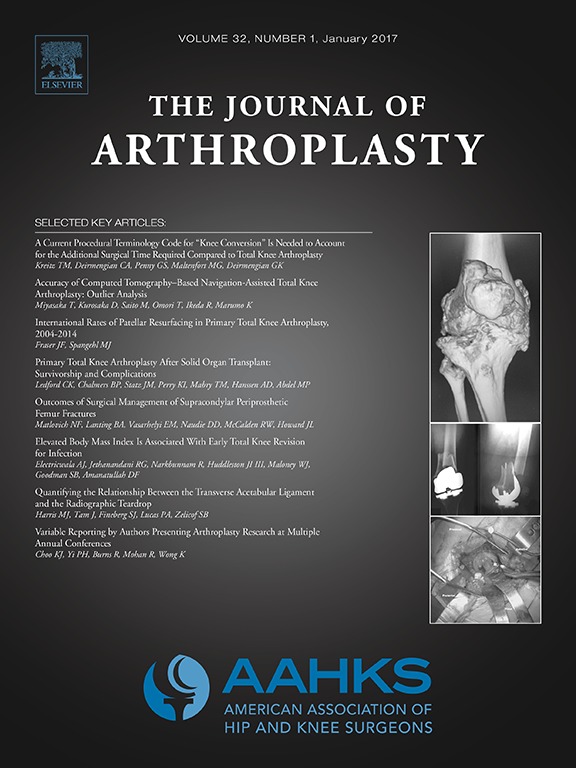
ARTHROPLASTY
Added periarticular ropivacaine to standard oral & i.v. analgesia offers no benefit in TKA
J Arthroplasty. 2015 Nov;30(11):2038-4264 patients with knee osteoarthritis undergoing total knee arthroplasty (TKA) were randomized to receive periarticular ropivacaine injection analgesia in addition to multi-modal oral and intravenous (i.v.) analgesia or multi-modal analgesia alone for the management of post-operative pain. The purpose of this study was to determine whether the addition of periarticular analgesia provides additive benefits in terms of pain reduction and functional outcome compared to the use of only multi-modal analgesia alone. The addition of periarticular ropivacaine was found to provide no additional benefits when compared to he use of multi-modal analgesia alone, as no significant differences in terms of pain, function, need for rescue medication or edema were found between groups throughout the 21 day follow up period.
Unlock the full ACE Report
You have access to {0} free articles per month.Click below to unlock and view this {1}
Unlock NowCritical appraisals of the latest, high-impact randomized controlled trials and systematic reviews in orthopaedics
Access to OrthoEvidence podcast content, including collaborations with the Journal of Bone and Joint Surgery, interviews with internationally recognized surgeons, and roundtable discussions on orthopaedic news and topics
Subscription to The Pulse, a twice-weekly evidence-based newsletter designed to help you make better clinical decisions
Exclusive access to original content articles, including in-house systematic reviews, and articles on health research methods and hot orthopaedic topics
Or upgrade today and gain access to all OrthoEvidence content for just $1.99 per week.
Already have an account? Log in


Subscribe to "The Pulse"
Evidence-Based Orthopaedics direct to your inbox.
{0} of {1} free articles
Become an OrthoEvidence Premium Member. Expand your perspective with high-quality evidence.
Upgrade Now












































































